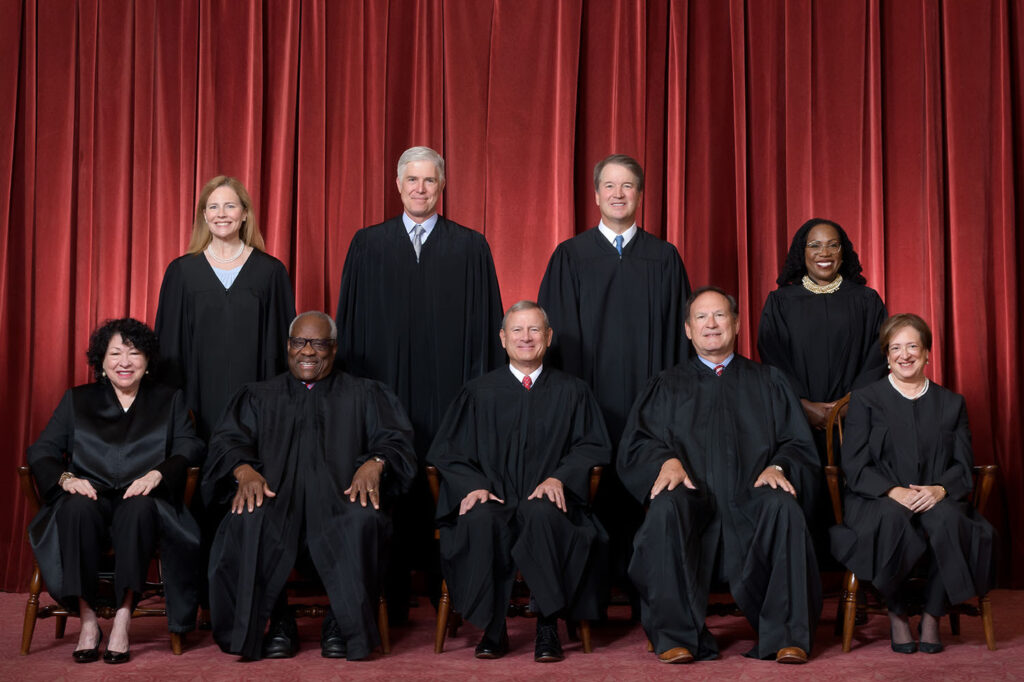“Everyone talks about the weather, but no one does anything about it,” said Mark Twain. In the global warming era I’m not sure that’s still true. We’ve done something about it. But it’s a good segue to “Everyone talks about the Supreme Court’s recusal problem, including me here last time, but no one does anything about it.” Now someone at least has a plan.
Unlike every lower federal court, the Supreme Court doesn’t have a code of ethics with any enforcement mechanism, or a process for deciding when Justices should recuse themselves from a case. They just think it over and decide for themselves if they are conflicted. Sometimes that works. Justice Jackson, the newest member of the court, recused herself from a case involving Harvard because she is a graduate and had been on the Board of Overseers. But too often this “process” fails.
Justice Thomas hasn’t recused himself from any cases involving the January 6 insurrection or the Stop the Steal movement despite his wife’s support for them. Justice Alito hasn’t recused himself from any similar cases despite his flag-flying exploits. Surprisingly there weren’t any cases in this Supreme Court term, coming to an end this month, that directly affect religious freedom, but last term there were three.
Should a Justice who says things like “If we are going to win the battle to protect religious freedom in an increasingly secular society, we will need more than law” be ruling on whether religious schools can get tax money or whether school employees can lead prayers at a football game? Clearly not. But that’s what Alito said in a 2022 speech. And of course he voted on those cases. So we need and will continue to need an official, effective recusal process like the lower courts have.
Congress could pass a bill that would establish a recusal process, but Congress won’t. The Republicans run the House. They aren’t going to rein in the Supreme Court; they’re winning there. But one House member has come up with a temporary fix. Congressman Jamie Raskin (D-MD), a former Constitutional law professor, points out in this New York Times article that the federal law covering when judges should recuse themselves is written to cover Supreme Court justices.
Raskin goes on to say that if the Attorney General formally brings a violation of that law by one Justice to the other Justices who are not in question, they have to act on it. He cites Supreme Court precedents that support his case. I note that the law says a judge or Justice must recuse themself when a spouse “is known by the judge to have an interest in a case that could be substantially affected by the outcome of the proceeding.”
I’m not going into the details here because you can read them in the letter the Secular Coalition sent to Attorney General Garland supporting this approach. Garland isn’t known for bold steps, which is why we wrote to him, but if he took this step it would raise the stakes for the Supreme Court’s failure to establish a process to keep conflicted Justices from deciding cases when they should not.
There’s no doubt that there will be future cases asking whether people can discriminate because of their religious beliefs. We need to solve this problem before then. If Garland uses the Raskin recusal idea for the upcoming decisions on two huge January 6 cases, it would definitely get the Court’s attention on the matter. You can contact Attorney General Garland here and encourage him to do so. You can add the link to the New York Times article or to our letter to keep your message simple. Court reform is going to be a long process. Let’s start here.



